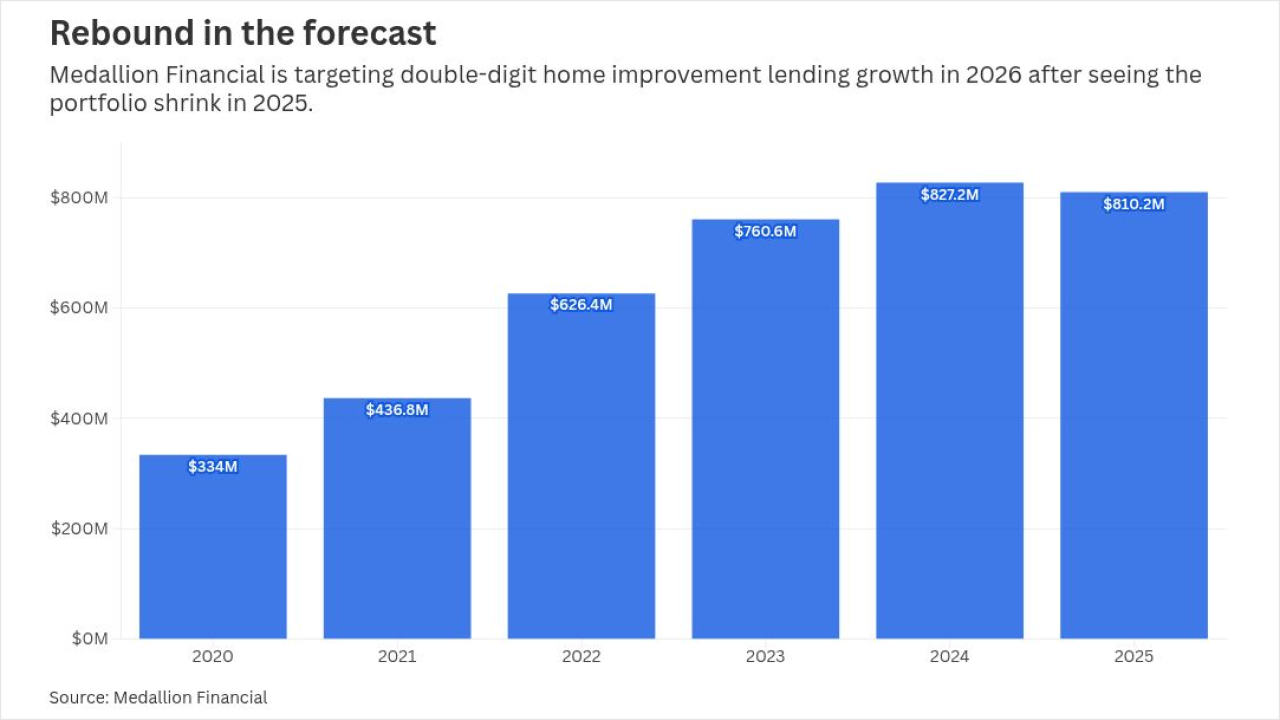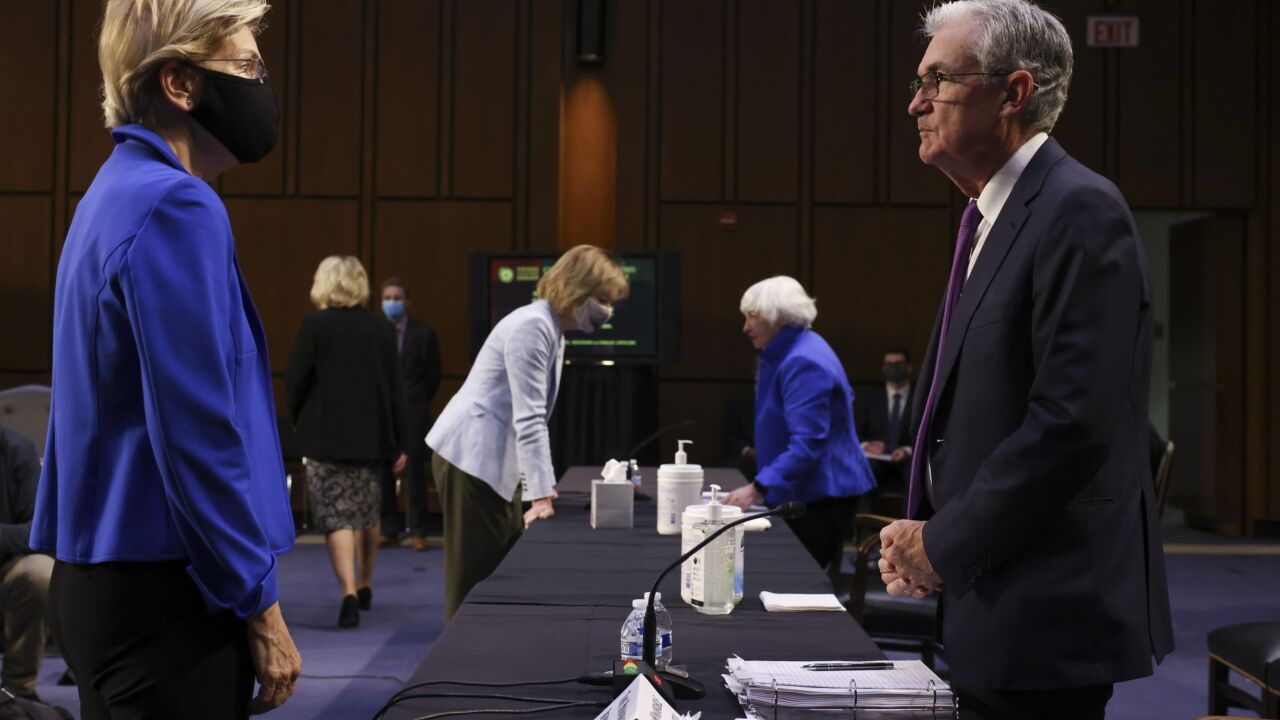WASHINGTON — Practical questions about how the Obama administration's proposed consumer financial protection agency would work are largely being ignored as lawmakers rush to pass a bill and the banking industry refuses to engage on the issue.
The House Financial Services Committee has scheduled back-to-back hearings, briefings and votes on regulatory reform for virtually every weekday the rest of the month, and it appears determined to pass the consumer protection legislation before Congress' August recess.
But several crucial issues about how the agency would function have yet to be detailed or even discussed, including how it would ensure that all entities offering financial products would be regulated, resolve conflicts between itself and banking regulators, define the "standard" products that must be offered and guarantee litigation risk does not choke off access to credit.
Even some prominent Democrats are wondering whether the debate is moving too quickly.
"You are coming up with wonderful questions that really there are no answers to," said Rep. Paul Kanjorski, the No. 2 Democrat on the committee, in an interview last week. "People have got to realize that all of these issues are just too important to put deadlines on them and that if we do that we are apt to exacerbate the likelihood of the same problems. These are huge and intertwined relationships. … So I'm for going, 'Whoa, slow down a little bit.' "
Many co-sponsors of the legislation, which panel Chairman Barney Frank introduced based on a draft by the Treasury Department, still appear to be trying to figure out exactly how the new agency would work.
At the same time, the banking industry has largely abandoned any attempt to confront operational problems posed by the new agency, instead focusing on a probably futile effort to stop the bill altogether. Lobbyists privately said they do not want to offer constructive feedback on the bill because doing so could ease its passage.
Hanging in the balance is an agency that appears to be a centerpiece of the Obama administration's efforts to reform the financial system's regulation and prevent a recurrence of the current crisis.
What is clear is that, at least in the House, little time will be available to work out operational details. Frank has set an ambitious series of deadlines for the bill, including a vote on the legislation by the end of July. The Senate may give itself more time. Though Senate Banking Committee Chairman Chris Dodd has set a Tuesday hearing on the consumer protection agency, he has yet to introduce a bill and has said he will wait until the House acts.
Frank offered a few details last week on his legislation but made it clear some issues are still being worked out.
Asked how the agency would be able to enforce regulations for all covered entities, including banks, credit unions and nonbanks like payday lenders and finance companies, Frank suggested the creation of a registry.
"The notion of licensing mortgage lenders came from Rep. Spencer Bachus, R-Ala., and we will broaden that scope so that anybody who does" offer those products will be registered, Frank told reporters. "I'm not sure, we might have the state registration. Again, the model in the mortgage industry with Spencer was, you have the states do it, and if the states don't do it, then we'll step in."
When asked whether such registration would cover all entities, Frank said, "You have to be specific. Payday lenders? Certainly, yes. Check cashers."
But the Massachusetts Democrat also appeared to suggest that, unlike banks, which are currently examined every year by state and federal regulators, not every covered entity will be routinely examined.
"We aren't talking about the examiners, but they'll be able to deal with complaints," he said. "I don't think they'll have the examination function, but they'll be able to enforce if there is a violation."
Under the Frank bill, the consumer protection agency would have to lay out standards for "standard" products that must first be offered to customers. But so far, no one appears to have an understanding of how they would be defined.
Asked about the issue, Frank said he was "not going to get into details."
"We are not going to prescribe — people are still going to be able to do other things they want to do, but we'll get into it later," he said.
Frank said products that are not plain-vanilla would not need to be preapproved, but industry representatives have questioned how they will know when a nonstandard product is acceptable since the bill also requires any product to be "reasonable."
"I don't know where you are getting preapproval from," Frank said. "It was not in any bill that have seen. … I am not going to get into any more detail."
Other co-sponsors also discussed the agency but acknowledged it was a work in progress.
Rep. Keith Ellison, D-Minn., a co-sponsor of the bill said he believes it is necessary to separate consumer protection from safety and soundness regulation because experience has shown that the Federal Reserve Board places consumer protection secondary to prudential supervision. The central bank only stepped in to protect consumers when practices became extremely abusive, he said.
"The interests of the Fed and consumers are not always aligned," he said.
But Ellison acknowledged he was unsure how a dispute between the banking regulators, which would retain power over safety and soundness supervision, and the new agency would be resolved.
"That, unfortunately, I can't answer," he said.
Ellison said he hopes the regulators would be able to work it out.
"What if there is a dispute? I haven't really thought in terms of that," he said. "Your question is a good question because you have to think about what you haven't thought about. … I haven't even thought about how a dispute between the agencies would be resolved, so I better figure that out."
The arguments he hears from bankers, Ellison said, are that they do not deserve primary blame for the financial crisis and therefore should not be punished for it.
But he said they are failing to make substantive arguments or offer ways to work through issues the bill presents, which is unhelpful for lawmakers who are convinced the current system failed.
"A consumer product safety board will hopefully be something that keeps good banks good," he said. "We don't want good banks to be put at a competitive disadvantage because they are doing things the ethical way, and other institutions are not, and therefore not able to turn a profit … . The truth is, I don't want the banks to look at the consumer protection board in an adversarial way, and they are whining about it."
To be sure, when Frank introduces bills he typically puts them out as a marker to initiate thinking before a vote is held.
Rep. Mel Watt, the monetary policy subcommittee's chairman and a co-sponsor of the legislation, said in an interview that this is true of the current bill.
"All of these questions need to be answered," he said. "The fact that we've introduced a bill doesn't end the discussion; it starts it."
The North Carolina Democrat said lawmakers had to ensure a balance to the new agency. During a private meeting, one bank regulator strongly lobbied for creating a five-person board that would have the power to overrule the consumer protection agency's decisions. But Watt said this raises its own problems.
"I asked … would you do a reciprocal relationship and allow a panel to overrule your decisions on safety and soundness?" Watt said. "If not, then how do you ensure you aren't creating a consumer agency that isn't a second-class agency? I didn't get any satisfactory response to that."
Watt, too, said he thinks enforcement against some entities will rely primarily on whether complaints arise against them.
"If you are doing financial services work of any kind, you are subject to the rules of this agency," he said. "If a consumer came and said, 'I'm being offered this product,' then they would know. If nobody ever complained, then they might not know until somebody did complain, but as soon as somebody did complain then they would go investigate."
For his part, Rep. Brad Sherman, D-Calif., another co-sponsor, said he expects no conflicts between safety and soundness regulators and the new agency. If one agency wanted to prohibit a particular practice or product, that would be the law of the land, he said.
"If the bank wants to lend me money at 2%, the prudential regulator would probably say that's a bad idea, so that transaction would be prohibited," he said. "Let's say the bank wanted to double-cycle bill me, the consumer protection agency would probably say that transaction would have to be prohibited. … I don't see that as a conflict between two agencies; it just means that they are subject to two sets of regulations. … I do not regard those as being in conflict just because one allows it and the other one prohibits it; it doesn't create a conflict."
Rep. Jackie Speier, D-Calif., said lawmakers are open to changes.
"We are going to be refining it as we go along," she said. "You have to have faith in the process: It's going to have some tweaks along the way, and it's going to have some growing pains, but we have to get something for the consumers of this country who feel like they have been stripped naked."
But she said the industry has not engaged lawmakers on operational problems. "I haven't had one banker come talk to me about it," she said. "I think they are going to try to make this a consumer protection agency in name only without the power that it needs to do its job."
Industry representatives said they remain focused on defeating the legislation altogether, not working out problems to make it more palatable.
Scott Talbott, the head lobbyist for the Financial Services Roundtable, reiterated, "Our goal is to kill it."
"This is not the most effective way to protect consumers. The speed and the fuzziness of the proposal highlight the problems with the bill," he said. "The more effective way to protect consumers is to strengthen the consumer protection departments within the banking agencies."
Bill Himpler, an executive vice president of the American Financial Services Association, said the industry could not accept any solution that allows a separate agency to enforce consumer protection laws.
"If that's the starting point, we need to go back to the drawing board," he said.
"It's important for the administration and members to understand what the possible implications of how broad-reaching this legislative proposal could be and how it could have significant impacts on the broad availability of credit."
But even the industry's allies in this fight said the legislation is all but certain to pass.
Rep. Mike Castle, R-Del., who opposes the bill, said it would be hard to derail the bill but improvements could be made.
"It's going to be difficult to stop it, but perhaps we can reexamine it, understand it, to make it better, or perhaps we can make our points to the Democrats to see if they are willing to change it to make it better," Castle said. "From a political point of view it would be very difficult to stop."
Kanjorski, for one, saw room for improvement. He said the committee should take more time to consider the bill's details.
"This is not something I think we should do, certainly, in three weeks," Kanjorski said. "We need legislation that has been sufficiently vetted to make sure we don't have some unintended consequence. … I see a lot of problems with it myself."





